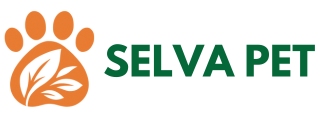Are you curious about the natural foods recommended for large dogs? You’ve come to the right place! In this article, we will dive into everything you need to know about caring for your beloved Toy Poodle. From essential care tips and grooming practices to their exercise needs and health concerns, we’ve got your furry friend covered. Get ready for some fun and useful insights to keep your Toy Poodle happy and healthy!
Understanding the Toy Poodle: A Brief Overview
Let’s dive into the delightful world of Toy Poodles! These little furballs are not just cute; they are intelligent, playful, and full of personality. Originating from the Poodle breed, Toy Poodles are the smallest version, making them perfect for families and individuals alike. They typically weigh between 4 to 6 pounds and stand around 10 inches tall.
What makes them stand out? Their hypoallergenic coat! If you or someone in your family has allergies, Toy Poodles can be a great choice. They don’t shed much, which means less dander floating around your home. Plus, they come in a variety of colors, from apricot to black, giving you plenty of options to choose from.
Now, I know what you might be thinking: Are they easy to train? Absolutely! Toy Poodles are known for their intelligence. They thrive on mental stimulation and love learning new tricks. This quality makes them not only great companions but also stars in dog shows!
Understanding the Toy Poodle is the first step in ensuring a happy life for your furry friend. So, buckle up! We’re about to explore the essential care tips that will keep your Toy Poodle healthy and happy.
Essential Care Tips for Your Toy Poodle
Caring for your Toy Poodle involves a mix of love, attention, and knowledge. Here are some essential care tips that I’ve learned over the years:
- Nutrition is Key: A balanced diet is crucial. Look for high-quality dog food that lists meat as the first ingredient. Avoid fillers like corn or soy, as these can lead to health issues down the line.
- Regular Exercise: Despite their small size, Toy Poodles have a lot of energy! Daily walks and playtime are a must. Aim for at least 30 minutes of exercise each day.
- Grooming: Their curly coat requires regular grooming to prevent matting. I recommend brushing them at least twice a week. Additionally, consider professional grooming every 4-6 weeks.
- Dental Care: Don’t overlook your Toy Poodle’s dental health. Brush their teeth regularly and consider dental treats to keep their gums healthy.
- Socialization: Expose your Toy Poodle to different environments, people, and other pets. This helps them develop a well-rounded personality.
- Training: Start training early. Use positive reinforcement techniques to encourage good behavior. Remember, consistency is key!
- Hydration: Always provide fresh water. Dehydration can lead to serious health issues.
- Comfort: Create a cozy space for your Toy Poodle to rest. A soft bed in a quiet area can make a world of difference.
By following these essential care tips, you’ll be well on your way to ensuring your Toy Poodle lives a long, happy life.
Common Health Issues in Toy Poodles: What to Watch For
Like any breed, Toy Poodles are prone to certain health issues. Being aware of these can help you catch problems early. Here are some common health concerns to watch for:
- Dental Problems: Due to their small mouths, Toy Poodles often face dental issues such as overcrowding and periodontal disease. Regular dental check-ups are crucial.
- Patellar Luxation: This condition occurs when the kneecap dislocates, causing pain and mobility issues. It’s often hereditary, so be sure to discuss it with your vet.
- Hip Dysplasia: Although more common in larger breeds, Toy Poodles can also suffer from hip dysplasia. Regular vet visits can help monitor their hip health.
- Eye Problems: They are susceptible to various eye conditions, including cataracts and progressive retinal atrophy. Regular eye check-ups can catch these issues early.
- Skin Allergies: Some Toy Poodles may develop skin allergies, leading to itching and discomfort. Identifying triggers is essential for managing this condition.
- Obesity: Toy Poodles love to eat, which can lead to obesity if their diet isn’t monitored. Keep an eye on their weight and adjust their food intake as needed.
Being proactive about your Toy Poodle’s health can prevent many of these issues from becoming serious problems. Regular vet visits and a keen eye for any changes in behavior or appearance are your best tools.
Natural Foods Recommended for Large Dogs: Keeping Them Healthy
Feeding your Toy Poodle a balanced diet is crucial for their overall health. Here are some natural foods recommended for large dogs that I personally recommend:
- Lean Meats: Chicken, turkey, and fish are excellent protein sources. They provide the necessary nutrients without unnecessary fats.
- Vegetables: Carrots, green beans, and sweet potatoes are great additions. They are packed with vitamins and fiber, promoting digestive health.
- Fruits: Blueberries, apples (without seeds), and bananas can be healthy treats. They are rich in antioxidants and vitamins.
- Whole Grains: Brown rice and oats are excellent for energy. They help maintain a healthy weight and provide essential nutrients.
- Healthy Fats: Omega-3 fatty acids from fish oil or flaxseed can promote a shiny coat and healthy skin.
- Homemade Dog Food: If you’re up for it, consider making homemade dog food. Just ensure it’s balanced and includes all necessary nutrients.
- Avoid Processed Foods: Steer clear of foods with artificial additives, fillers, and preservatives. These can lead to health problems over time.
When introducing new foods, do it gradually. Monitor your Toy Poodle for any adverse reactions. A healthy diet is a cornerstone of a long, happy life.
Best Practices for Grooming Your Toy Poodle
Grooming your Toy Poodle is more than just keeping them looking cute; it’s essential for their health. Here are some best practices I’ve found effective:
- Regular Brushing: Brush your Toy Poodle’s coat at least twice a week. This prevents matting and keeps their coat shiny.
- Bathing: Bathe them every 4-6 weeks or as needed. Use a gentle dog shampoo to avoid skin irritation.
- Ear Cleaning: Check their ears regularly for dirt and wax buildup. Use a vet-recommended solution to clean them.
- Nail Trimming: Keep their nails trimmed to prevent overgrowth. If you hear clicking sounds on hard floors, it’s time for a trim!
- Professional Grooming: Consider taking your Toy Poodle to a professional groomer every few months. They can handle tasks like clipping and styling that might be tricky for you.
- Check for Skin Issues: While grooming, keep an eye out for any lumps, bumps, or skin irritations. Early detection is key!
- Use the Right Tools: Invest in quality grooming tools. A slicker brush, comb, and nail clippers designed for small breeds can make a huge difference.
By following these grooming practices, you’ll not only keep your Toy Poodle looking fabulous but also contribute to their overall health and well-being.
Exercise Needs: How Much is Enough for Your Toy Poodle?
You might be surprised to learn that even though Toy Poodles are small, they have significant exercise needs. Here’s what I’ve discovered about keeping them active:
- Daily Walks: Aim for at least 30 minutes of walking each day. This can be split into two shorter walks if your schedule requires it.
- Playtime: Engage in interactive play with toys. Fetch, tug-of-war, and hide-and-seek are great ways to keep them entertained.
- Mental Stimulation: Puzzle toys and training sessions can provide mental exercise. Toy Poodles love to learn, so keep their minds sharp!
- Socializing: Take them to dog parks or playdates with other dogs. This not only provides exercise but also helps with social skills.
- Watch for Signs of Fatigue: Toy Poodles can tire quickly. If your pup is panting heavily or lagging behind, it’s time to take a break.
- Adapt to Their Age: Puppies and older dogs may have different exercise needs. Adjust the intensity and duration accordingly.
- Avoid Overexertion: While it’s important to keep them active, avoid pushing them too hard. Their small size means they can overheat quickly.
By ensuring your Toy Poodle gets enough exercise, you’ll help them maintain a healthy weight and keep their energy levels up.
The Importance of Regular Vet Visits for Toy Poodles
Regular vet visits are crucial for your Toy Poodle’s health. Here’s why I believe they are non-negotiable:
- Preventive Care: Routine check-ups can catch potential health issues before they become serious. Early intervention is always better!
- Vaccinations: Keeping your Toy Poodle’s vaccinations up to date protects them from various diseases. Discuss a vaccination schedule with your vet.
- Dental Health: Regular vet visits allow for professional dental cleanings, which can prevent serious dental issues.
- Weight Management: Your vet can help monitor your Toy Poodle’s weight and suggest dietary adjustments if necessary.
- Parasite Control: Regular check-ups allow for parasite prevention, including fleas, ticks, and worms.
- Behavioral Concerns: If you notice any behavioral changes in your Toy Poodle, your vet can help identify underlying health issues.
- Building a Relationship: Regular visits help your Toy Poodle become familiar with the vet’s office, making future visits less stressful.
In short, regular vet visits are an investment in your Toy Poodle’s long-term health. Don’t skip them!
Homemade Dog Food for Toy Poodles: Is It Right for Your Pet?
Homemade dog food can be a great option for some Toy Poodle owners. Here’s what I’ve learned about it:
- Control Over Ingredients: Making your own dog food allows you to control what goes into your pup’s diet. This can be especially helpful for dogs with allergies.
- Balanced Nutrition: Ensure you’re providing a balanced diet. Consult with a vet or a pet nutritionist to make sure you’re meeting all nutritional needs.
- Time-Consuming: Preparing homemade meals can be time-consuming. If you have a busy schedule, it might not be feasible.
- Cost Considerations: Homemade food can sometimes be more expensive than commercial options. Consider your budget when deciding.
- Variety: Dogs enjoy variety in their diets. Homemade meals allow you to mix things up and keep mealtime exciting.
- Monitor Health: If you switch to homemade food, monitor your Toy Poodle’s health closely. Look for changes in energy levels, coat condition, and digestion.
- Gradual Transition: If you decide to switch to homemade food, do it gradually to avoid digestive upset.
Ultimately, homemade dog food can be a great choice for some Toy Poodle owners, but it requires careful planning and consideration.
Supplements for Toy Poodle Health: What You Should Know
Supplements can play a role in maintaining your Toy Poodle’s health. Here’s what I’ve found helpful:
- Omega-3 Fatty Acids: These can promote a healthy coat and skin. Fish oil supplements are a popular choice.
- Glucosamine: This supplement can help support joint health, especially in older Toy Poodles.
- Probiotics: These can aid in digestion and support gut health. A healthy gut can lead to a happier pup!
- Multivitamins: If you’re concerned about nutritional gaps in your Toy Poodle’s diet, a multivitamin can help fill those voids.
- Consult Your Vet: Before starting any supplements, consult with your veterinarian. They can provide guidance based on your Toy Poodle’s specific needs.
- Quality Matters: Choose high-quality supplements from reputable brands. Not all supplements are created equal!
- Monitor for Changes: After introducing any supplement, keep an eye on your Toy Poodle for any changes in behavior or health.
Supplements can be a valuable addition to your Toy Poodle’s health regimen, but they should complement a balanced diet, not replace it.
Building a Strong Bond with Your Toy Poodle: Tips and Tricks
Building a strong bond with your Toy Poodle is one of the most rewarding experiences. Here are some tips I’ve found effective:
- Quality Time: Spend time together doing activities you both enjoy. Whether it’s walks, playtime, or cuddling, quality time strengthens your bond.
- Training Together: Training sessions can be a great bonding experience. Use positive reinforcement to build trust and cooperation.
- Consistent Routine: Dogs thrive on routine. Establishing a consistent schedule for feeding, walks, and playtime can create a sense of security.
- Positive Reinforcement: Reward good behavior with treats and praise. This encourages your Toy Poodle to repeat those behaviors.
- Be Patient: Building a bond takes time. Be patient and understanding as your Toy Poodle learns to trust you.
- Engage in Play: Play is a great way to connect. Use toys that encourage interaction and fun.
- Show Affection: Don’t forget the power of affection! Regular cuddles and gentle petting can strengthen your bond tremendously.
By investing time and effort into building a strong bond with your Toy Poodle, you’ll create a lifelong friendship that’s filled with love and joy.



